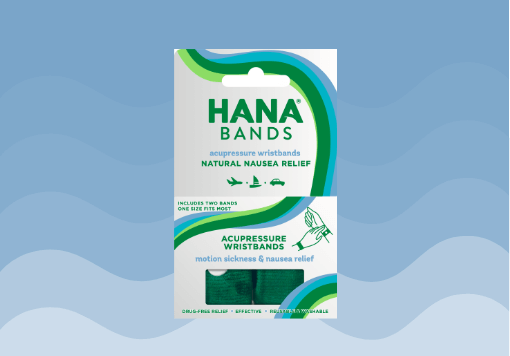Is it ok to give your child medication when they are experiencing motion sickness? Certain over-the-counter medications areapproved for children 2 years and up. But parents should always consult with a doctor and use caution when giving their child medication. The first question to ask is:what can kids take for motion sickness? Then, learn more about the medication, recommended dosages, and more.

Unfortunately, motion sickness can be common in children – taking a toll on your family adventures and memories together. If you want to go on a boat, car, train, or amusement park ride andknow that your child is susceptible to motion sickness, then you need to be sure to have a few remedies on hand to prevent the symptoms.
Medications for Motion Sickness in Children
Medication is often the first thing that comes to mind when parents are wonderingwhat can kids take for motion sickness? The good news is that there are pediatric medications with ingredients that prevent common motion sickness symptoms, including nausea and vomiting.
Here are the most common types of over-the-counter motion sickness medications:
- Dramamine: The active ingredient in this name-brand medication is dimenhydrinate. You can find Dramamine or generic brands with the same ingredients. Make sure to choose Dramamine for kids, so you have the ideal dosage recommendations. According to the instructions, Dramamine can be given every 6 – 8 hours to children 2 and older.
- Bonine: Another alternative to Dramamine is the brand Bonine, which contains the active ingredient meclizine. This over-the-counter motion sickness medication is preferred by some people because it has a lower risk of drowsiness. Keep in mind that Bonin should not be used for younger children. It’s only approved for 12 years and older.
- Motion Sickness Patches: These patches contain transdermal scopolamine, which is absorbed through the skin and can help with managing nausea and vomiting. Again, the patches are only approved for 12 years and up, so don’t put the patches on younger children.
It’s essential to understand that you should always talk to the child’s doctor before giving any medication. Even over-the-counter medications can have negative side effects. So, consulting with the pediatrician is critical to protect your child’s health.
This information is not medical advice. Regardless of the person’s age or current health condition, you should always consult with a medical professional before using any type of medication – both over-the-counter and prescription medications.
Medication Alternatives: Natural Remedies for Motion Sickness
If you want to avoid medications altogether, consider using natural remedies. For example, ginger and peppermint are two ingredients that can offer anti-nausea and anti-vomiting benefits.
Some kids also benefit from using motion sickness bands. These wristbands come in children’s sizes and must be positioned on the wrists to activate the pressure point on the wrist that helps manage nausea and vomiting.
Hana Tonic is another alternative that you might consider. This health shot contains multiple ingredients that can bebeneficial for motion sickness management and more. Keep Hana Tonic on you when heading on a family vacation. This natural remedy can be great for adults and kids alike!
This article is not intended to provide medical advice. Please consult with your pediatrician if you have any questions before taking.



